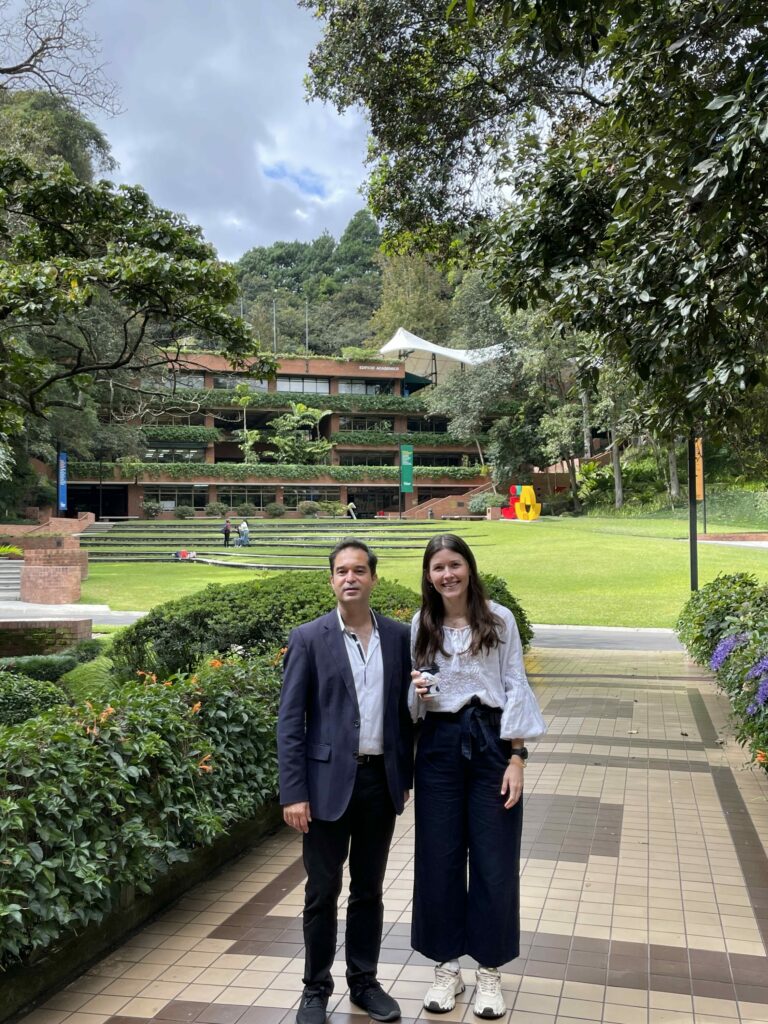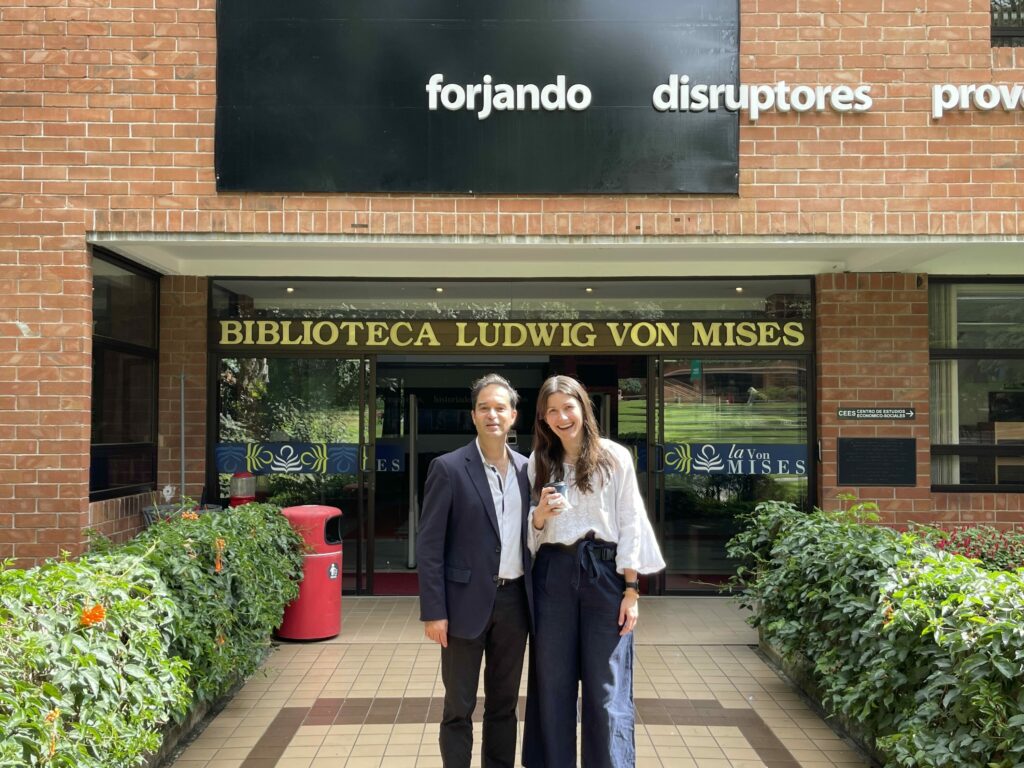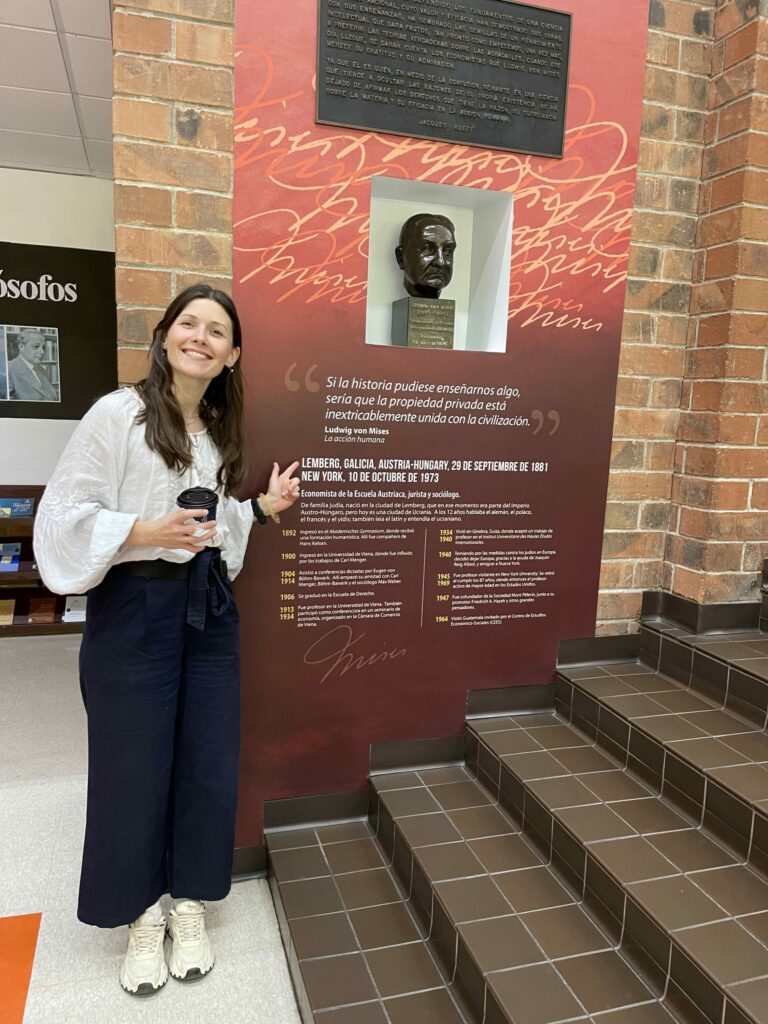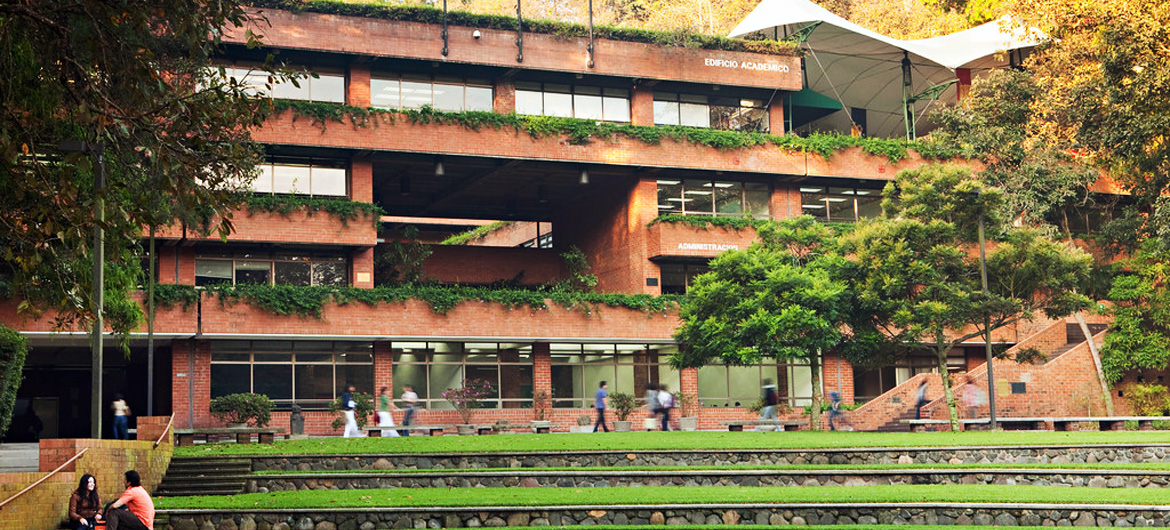The below is a guest post by Yuliya Tychkivska, Executive Director of The Aspen Institute – Ukraine, Co-Founder of the Bendukidze Free Market Center – Ukraine, and member of Mannkal Economic Education Foundation‘s Advisory Council.
I want to share my experience of visiting one of the most impressive universities in the world, Francisco Marroquín University (UFM), located in Guatemala. UFM hosted the Mont Pelerin Society’s 2021 Meeting.

This year the University is celebrating its 50th anniversary.
I believe that when you start an important project which is bigger than yourself and bigger than your life, others will join, share, support, and continue.
The story of UFM is an incredible story of a person who had a dream, implemented it, and left it to live beyond his own life. I had heard a great deal about UFM from Kakha Bendukidze, from Andre Illarionov, from my friend Ron Manners. Going to Guatemala for the first time in my life, I thought I was ready to see a decent university, but my expectations were insanely exceeded.
UFM describes its mission as follows:
“To teach and disseminate the ethical, legal, and overall economic principles of a society of free and responsible persons.”
Guatemala is a country with a significant inequality gap. A few decades ago, a group of entrepreneurs who already earned enough resources, regularly met to find an answer to “why Guatemala is such a poor country.” And one day, their leader, Manuel ‘Muso’ Ayau, discovered a copy of the magazine The Freeman (a publication of the Foundation for Economic Education). This alerted ‘Muso’ to the powerful educational possibilities of the Austrian School of Economics, as developed by Mises and Hayek. This discovery became a great revelation and inspiration for the group of entrepreneurs. This was a huge impetus for the entrepreneur Muso to decide on building a university that would pursue the ideas of freedom, free market, property rights.
The University aims to prepare a new generation of entrepreneurs, economists, lawyers and physicians who think like “free people.”
When you enter the well-guarded campus, you can feel a strong contrast with Guatemala City. It is like you go from a chaotic city to paradise: magnificent roads, wonderful architecture, friendly people, and fascinating nature around you.
The Campus is quite large – the land of the University has been purchased via 12 blocks over the last 50 years.
The architecture, designed by a Guatemalan-born Chinese architect, strikes with an organic combination and integration with nature. Nature is everywhere; landscape and buildings are one composition, very inspiring. For the first time, I saw a parking area where trees grow through the levels – giving light, giving nature and soul even to the parking lot.
At the University’s heart are the ideas of the Austrian School of Economics, ideas of freedom, free market and property rights. If you think about the University in one word – this word will be FOCUS. The focus is on the mission and its implementation.

UFM has more than 3,000 students, mostly Guatemalans. There are international students, mainly from the United States. However, they are still few because today’s main limitation is the lack of dormitories where international students could live safely.
Every student must take five core courses of curriculum on liberty. Whether you are a future economist, a filmmaker, a doctor, or a lawyer, you must pass and know the economics of freedom.
The technical equipment is impressive. I was lucky to be accompanied by the former President of the University, the very optimistic Gabriel Calzada, for a tour. Gabriel generously gave me more than 3 hours of his time and showed me around the University. He proudly showed me that almost all audiences are equipped with the newest Shiseido audio systems to provide perfect transmission sound from anywhere in the audience (without exaggeration, I checked). A camera on a ceiling follows each move of the lecturer and transmits the image immediately to the Zoom. These innovative improvements by the University were made in the first months of the pandemic to provide a choice for the student. Each student can choose whether to come to Campus or study from home. If the student chooses the second option, they will not drop out of the learning process.
Several classrooms are equipped with Google Boards designed in conjunction with Stanford D School for real co-creation and design thinking techniques! Everything is mobile; everything is adaptive; everything is transformative and native.
When you walk through the campus you see a multitude of spaces everywhere: for conversations, chats and spontaneous meetings. These places, for purpose-designed function, entice students, professors and guests to communicate. Energy and communication are flourishing on the campus, which, I believe, leads to the flowing of ideas, meanings, and their implementation.
Each department (unit) conducts its operating activities as a separate company. They prepare their budgets, necessarily with a surplus, and they set goals. Each classroom has its value. Teachers reserve specific classrooms, depending on the format, considering the value of each classroom. The cost of audiences in prime time (morning) is higher than an afternoon. Everything is based on competition – which does not cannibalise products but provides growth—such a perfect micro world.
At the University everything is for a reason. Quotes, illustrations, sculptures, exhibitions in the corridors, all in “focus.”
I was impressed by the medical school, which has a hospital nearby. Students work with extremely expensive and realistic life-sized “mannequins.” Teachers program them for different behaviour, and this is how simulation assists future doctors learn.
Two large valleys, where the University buildings are located, are connected by a tunnel. It is a costly indulgence but the outcome of an interaction and contact between students, teachers and administration is well worth it.
The new Media School at UFM has real clients, as well as the School of Filmography. This practical component allows students to be able to gain practical experience and make a profit. The University itself also orders services from these departments but, of course, not for free!
It has a very impressive School of Architecture, full of models and awards for winning international competitions and is equipment with 3D printers, robotics, culinary school – everything is here.
Of particular importance is the operation of the Department of Teacher Development. This department offers different programs and training for professors, some of them developed by the incredible Barbara Oakley. Being able to teach well is much more than knowing your subject well. [Barbara Oakley is visiting Mannkal Foundation in Perth, November 2022.]
Many graduates are very proud to be part of the University by working there as professors, administrators, and deans.
There is also the Founder’s Room, where one could find notes about the Founders and the story of the University.
The Mises Library has an extensive collection of original works by Austrian economists.
Teachers from different countries teach here; many American professors are thrilled to teach classes here and be in this environment. Friedman and Hayek taught many courses here.
The University has become a magnet for many meaningful projects. A magnet for the great resources that various people sent here. When you do something very well, others desire to join the process.
UFM has a special place in the ancient city of Antigua, which is located about 1.5 hours’ drive from Guatemala City – Casa Popenoe. A unique event, the Antigua Forum, takes place in this beautiful residence. The Forum gathers a small group of people from all over the world who discuss fundamental problems and co-create solutions. The achievement of the Forum is that a large number of born projects have already been implemented. In particular, it was here that Kakha worked out the ideas of Georgian reforms.

I understand that many other exciting details of the existence of the University are simply unknown to me. As a gift, the participants of MPS 2021, received a book about the history of the creation and operation of UFM, which I will definitely read. Some of you will know that two months before his death, Kakha, and several other people, started discussing a concept that could be a university in Ukraine. I was lucky to co-ordinate this process then. Unfortunately, Kakha is not there. However, there is a dream and, after visiting UFM, a clearer picture of what we need.
We invite your responses, feedback and suggestions. Please write in the comments box below. If this article resonates with you, please SHARE with all your contacts!
